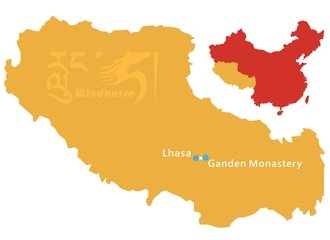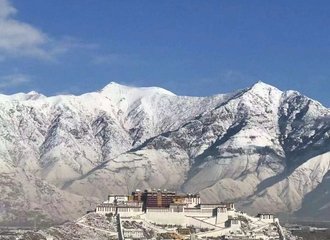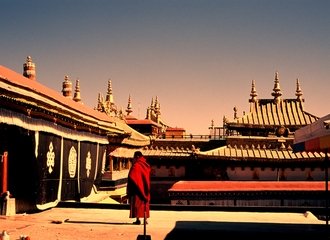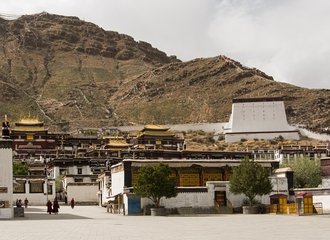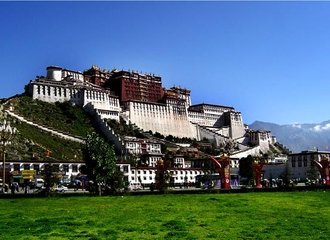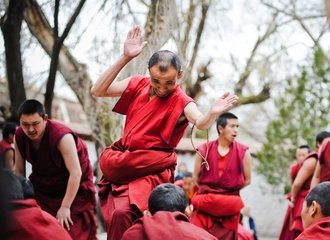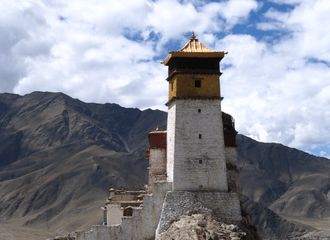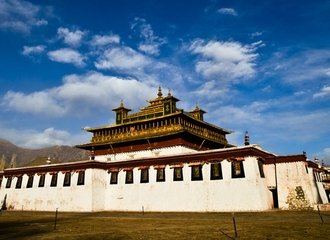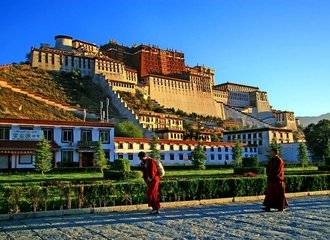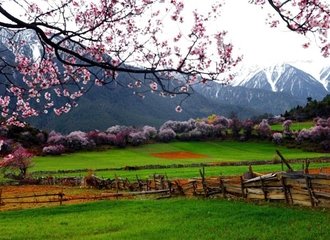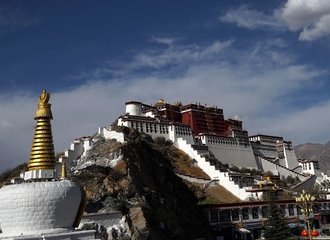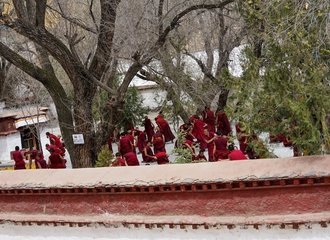Top 5 Temples in Shanghai
Visiting some temples in your China tour is not only a way to appreciate the architectural beauty and religious significance but also a means to gain a deeper understanding of Chinese culture. Temples serve as important cultural and spiritual centers, reflecting the beliefs, customs, and values of the local communities.
The top temples in Shanghai, such as the City God Temple, Jade Buddha Temple, and Longhua Temple & Pagoda, exemplify unique architectural styles and cultural narratives. These temples are not just places of worship but also vibrant showcases of ancient building design and craftsmanship, making your journey through Shanghai all the more colorful and enlightening.

City God Temple (Chenghuang Miao)
City God Temple, also known as Chenghuang Miao, is a fascinating cultural and historical site located adjacent to the renowned Yuyuan Garden in Shanghai. A visit to this small yet captivating temple provides an opportunity to explore the vibrant atmosphere of the Old Town, where the Yuyuan Garden and Bazaar are situated.
The City God Temple dates back to the fifteenth century, during the Ming Dynasty, and holds great significance in Chinese history and folklore. It not only represents a large temple complex, but also serves as the heart of the traditional commercial district surrounding the temple.
As you wander through the bustling streets surrounding the temple, you'll find a myriad of shops and stalls offering a wide variety of goods, including traditional crafts, unique souvenirs, local delicacies, and more. It's a perfect place to shop for gifts to bring back to your family and friends or to indulge in some authentic Chinese cuisine.
Immerse yourself in the lively atmosphere, appreciate the intricate architecture of the temple, and explore the rich cultural heritage that resonates throughout the area. The City God Temple and its surrounding district provide a glimpse into Shanghai's past and offer a memorable experience for visitors seeking to delve into the city's vibrant history and vibrant marketplace.
Location: No. 249, Fangbang Middle Road, Huangpu District
Opening Hours: 8:00 - 16:30
Entrance Fee: CNY10
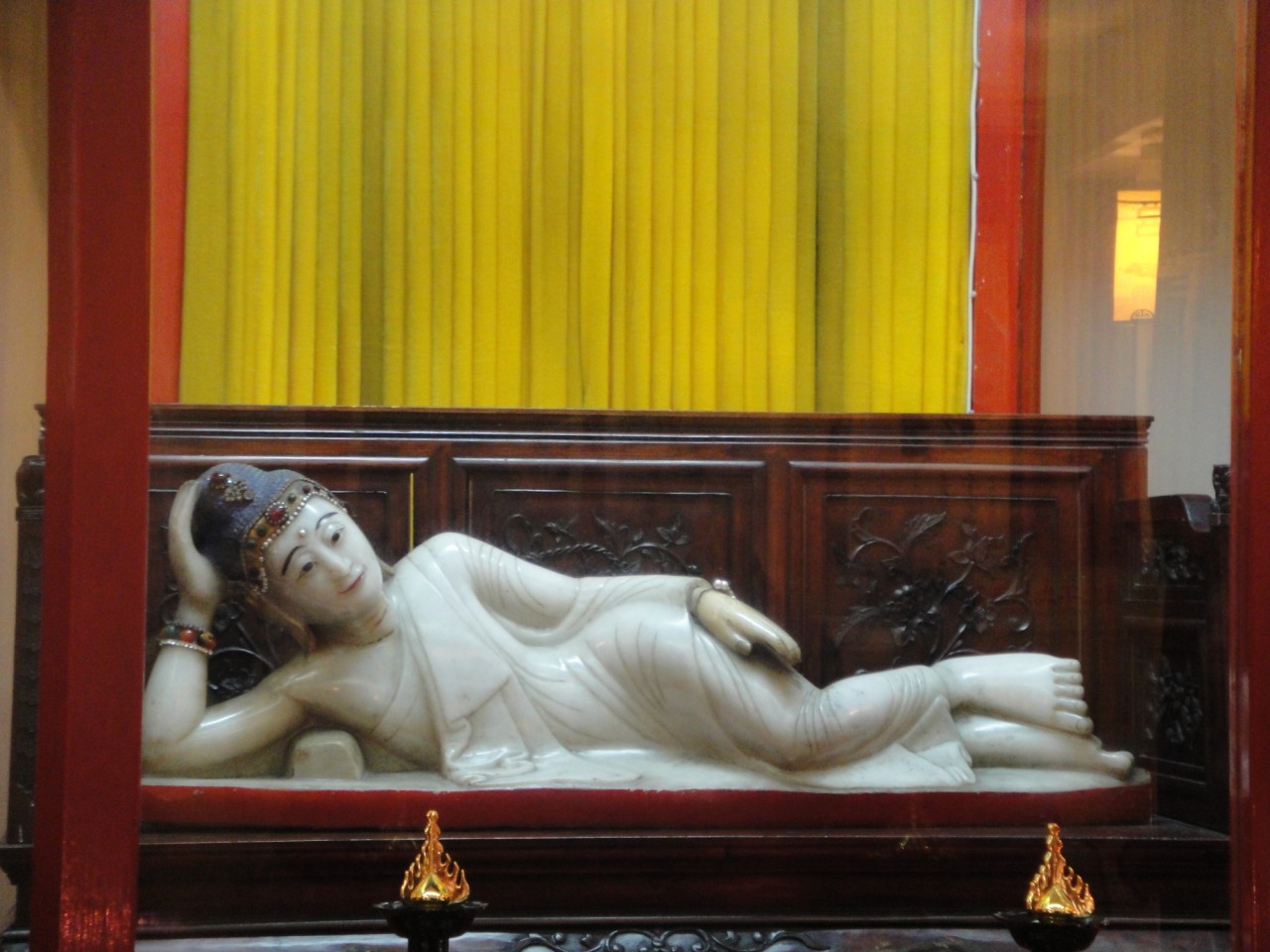
Jade Buddha Temple (Yufo Si)
The Jade Buddha Temple, also known as Yufo Si, is a renowned Buddhist temple located in Shanghai, China. It is a popular tourist destination and holds great cultural and religious significance. The temple is particularly famous for its stunning white jade Buddha statues, which are considered precious and sacred.
The construction of the temple dates back to 1882 during the Qing Dynasty. It was built to house two remarkable Buddha statues that were brought from Burma (now Myanmar) by a monk named Huigen. The main attraction of the temple is the exquisite seated Buddha statue, which stands at about 1.9 meters tall and is carved from a single piece of white jade. The other statue, a reclining Buddha representing Buddha's death, is equally remarkable.
Visitors to the Jade Buddha Temple can marvel at the intricate craftsmanship of the jade statues and witness the peaceful and serene ambiance of the temple complex. The temple features traditional Chinese architectural elements, with colorful decorations and ornate carvings adorning the halls and walls. The tranquil gardens surrounding the temple provide a serene setting for reflection and meditation.
Aside from its religious and cultural significance, the Jade Buddha Temple offers visitors a glimpse into Buddhist practices and rituals. You can observe monks chanting prayers and performing rituals, creating an atmosphere of spiritual devotion and tranquility.
The temple also houses a museum where you can explore Buddhist artifacts, scriptures, and artwork, providing further insights into the rich history and traditions of Buddhism.
Location: No. 170, Anyuan Road, Putuo District
Opening Hours: 8:00 – 16:30 (Except for Major Festivals)
Entrance Fee: CNY 20; Jade Buddha Statues: CNY 10
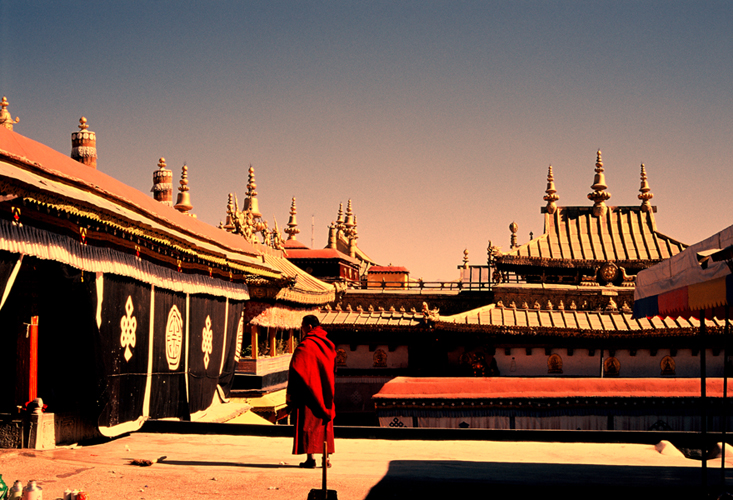
Jing'an Temple
Jing'an Temple is a prominent Buddhist temple located in the Jing'an District of Shanghai. The temple holds significant historical and cultural value, attracting both locals and tourists alike. The origins of Jing'an Temple can be traced back over 780 years to the Southern Song Dynasty. Throughout its long history, the temple has undergone several reconstructions and renovations, with the current architectural style reflecting a mix of traditional and modern elements.
The temple's main hall, the Mahavira Hall, is a grand structure that houses a large golden statue of the Buddha. It serves as the focal point for Buddhist ceremonies and rituals. Surrounding the main hall, you'll find beautifully adorned pavilions, halls, and courtyards that exude a sense of tranquility and spiritual serenity.
Jing'an Temple is not only a religious site but also a cultural center. It hosts various Buddhist activities, lectures, and exhibitions, providing opportunities for visitors to deepen their understanding of Buddhism and Chinese culture. The temple is known for its role in promoting Buddhist teachings and fostering spiritual development among its followers.
Beyond its religious significance, Jing'an Temple is located in a bustling area of Shanghai, surrounded by modern skyscrapers, luxury shopping malls, and vibrant city life. This striking contrast between ancient traditions and modernity creates a unique ambiance and offers visitors a chance to experience the harmonious coexistence of the past and the present.
Location: No.1686, Nanjing West Road, Jing'an District
Opening Hours: 07:30 -17:00
Entrance Fee: CNY50; CNY 2 per small bunch of incense.
Longhua Temple and Pagoda
Longhua Temple and Pagoda is a renowned Buddhist site located in Shanghai. With a history of over 1,700 years, it is one of the oldest and most culturally significant temples in the region.
The temple was originally built during the Three Kingdoms period (220-280 AD) and has since undergone several renovations and expansions. The architecture of Longhua Temple showcases a combination of traditional Chinese Buddhist design elements and the distinctive Song Dynasty style.
The main hall of the temple, known as the Grand Hall of the Great Sage (Daxiongbaodian), houses a statue of the Maitreya Buddha, which is considered the largest wooden Buddhist statue in China. The hall is adorned with intricate carvings and colorful decorations, creating a visually stunning and spiritually uplifting atmosphere.
Adjacent to the temple is the Longhua Pagoda, also known as the Seven-Story Pagoda. Standing at a height of 40.4 meters (133 feet), it is a significant landmark of the temple complex. The pagoda is an architectural masterpiece, featuring delicate brickwork and exquisite Buddhist carvings. Climbing to the top of the pagoda provides visitors with panoramic views of the surrounding area.
Longhua Temple is not only a place of worship but also a center for Buddhist rituals and ceremonies. One of the most popular times to visit Longhua Temple is during the annual Longhua Temple Fair, which takes place around the Chinese New Year. The fair showcases traditional performances, cultural exhibitions, and a variety of local snacks and crafts, creating a festive and lively atmosphere.
Location: No. 2853, Longhua Road, Xuhui District
Opening Hours: 7:10 to 16:30
Entrance Fee: CNY10
Shanghai Confucius Temple
The Shanghai Confucius Temple, also known as Wen Miao, is a historical and cultural landmark located in the city of Shanghai. It is dedicated to Confucius, the great philosopher and educator of ancient China. The temple is a place of worship, study, and cultural activities related to Confucianism.
Built in 1294 during the Yuan Dynasty, the Shanghai Confucius Temple is one of the oldest and largest Confucius temples in the country. The architectural style of the temple follows the traditional Chinese design, with grand halls, courtyards, and beautiful gardens.
The temple complex consists of several main structures, including the Dacheng Hall, where the statue of Confucius is enshrined. The hall is adorned with elaborate woodcarvings, inscriptions, and ceremonial vessels. Other buildings within the complex include the Juxing Pavilion, Yimen Gate, and Xuegong, which served as the school for Confucian teachings.Visitors to the Shanghai Confucius Temple can immerse themselves in the serene atmosphere and explore the rich cultural heritage of Confucianism. Many traditional rituals and ceremonies take place at the temple, attracting worshippers and scholars seeking wisdom, blessings, and moral guidance.
Location (Shanghai Confucius Temple): No. 215, Wenmiao Road, Huangpu District
Opening Hours: 9:00 - 17:00
Entrance Fee: CNY10
If you're planning a trip to Shanghai and wish to explore one of the temples in your Shanghai tour, WindhorseTour, a reputable China travel agency,, can provide you with a knowledgeable tour guide who will accompany you and offer valuable insights as you explore these remarkable sites. With their expertise, you can fully appreciate the cultural significance and historical significance of these sacred places.
Related Tours:


